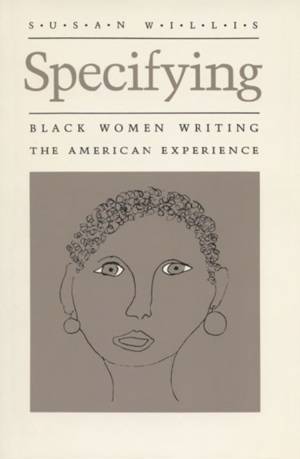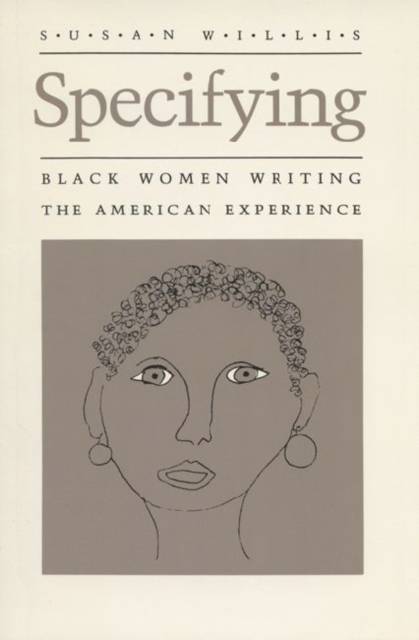
- Afhalen na 1 uur in een winkel met voorraad
- Gratis thuislevering in België vanaf € 30
- Ruim aanbod met 7 miljoen producten
- Afhalen na 1 uur in een winkel met voorraad
- Gratis thuislevering in België vanaf € 30
- Ruim aanbod met 7 miljoen producten
Omschrijving
With a series of brilliant and provocative essays, Susan Willis has produced the first sustained, book-length study of fiction by contemporary American black women writers. Using a Marxist approach, Willis places the work of Zora Neale Hurston, Paule Marshall, Alice Walker, Toni Morrison, and Toni Cade Bambara in a critical context that includes history, culture, politics, and literary theory. Willis' work promises to make a major impact among scholars, students, and general readers interested in contemporary fiction, Afro-American culture, women's studies, American studies, and the conjunction of literary and political theory.
The tradition of literary criticism about black women writers has, until now, focused primarily on establishing the existence of these writers and defining the contexts within which they may be appreciated. Willis goes further by looking at the literary ramifications of particular themes that run throughout the works of major writers in this tradition--her most pivotal one being the movement from the past to the future, from girlhood to womanhood. Her approach is different from those of previous works in that she focuses strongly on these writers' literary modes--narrative, metaphor, etc.--and demonstrates how these modes are themselves essential aspects of their ideas as well as their process.
Willis establishes that the novelists she treats are not only historians who document the problems of capitalist industrial society but also visionaries who imagine for their characters alternative modes of work, community, and economy, toward which readers may look as they approach the future.
Specificaties
Betrokkenen
- Auteur(s):
- Uitgeverij:
Inhoud
- Aantal bladzijden:
- 196
- Taal:
- Engels
- Reeks:
Eigenschappen
- Productcode (EAN):
- 9780299108946
- Verschijningsdatum:
- 15/11/1989
- Uitvoering:
- Paperback
- Formaat:
- Trade paperback (VS)
- Afmetingen:
- 142 mm x 218 mm
- Gewicht:
- 244 g

Alleen bij Standaard Boekhandel
Beoordelingen
We publiceren alleen reviews die voldoen aan de voorwaarden voor reviews. Bekijk onze voorwaarden voor reviews.











